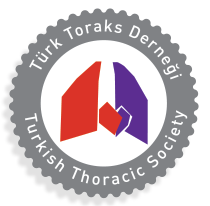Abstract
Abstract
OBJECTIVES:
Chronic obstructive pulmonary disease (COPD) exacerbation is one of the most common reasons for hospital admission. Patients with COPD with a long length of stay (LoS) occupy a disproportionately high fraction of hospital bed-days. The objective of this study was to identify associations of long LoS in patients admitted with COPD exacerbation.
MATERIAL AND METHODS:
From December 2012 until June 2013, 499 patients were admitted to Queens Hospital, Romford, UK, with COPD exacerbation. Mean LoS was 7 days, with a median of 5 days, and a 90th percentile of 14 days. In this retrospective observational cohort study, 64 patients with a short LoS were compared with 62 patients with a long LoS.
RESULTS:
Relative to the short LoS, patients with long LoS had significantly lower arterial blood pH, higher arterial PaCO2 and HCO3, higher white cell count, higher globulin and more frequent chest X-ray changes, lower albumin levels, and lower Barthel and Braden scores. They were less likely to have seen the hospital COPD specialist nurse, more likely to require escalation of social care on discharge, and more likely to die during admission. Nearly 66% of the long LoS patients remained in hospital beyond the time of being medically fit for discharge. Commonly cited reasons for delayed discharge were the wait for therapy and social services assessments and the wait for commencement of community social care.
CONCLUSION:
Meticulous targeting of features peculiar to long LoS patients has the potential to reduce future hospital bed-days for patients with COPD in our and other hospitals.
Cite this article as:
Madani Y, Saigal A, Sunny J, et al. Characterization of Chronic Obstructive Pulmonary Disease patients with a long length of stay: a retrospective observational cohort study. Turk Thorac J 2017;18:119-24.



